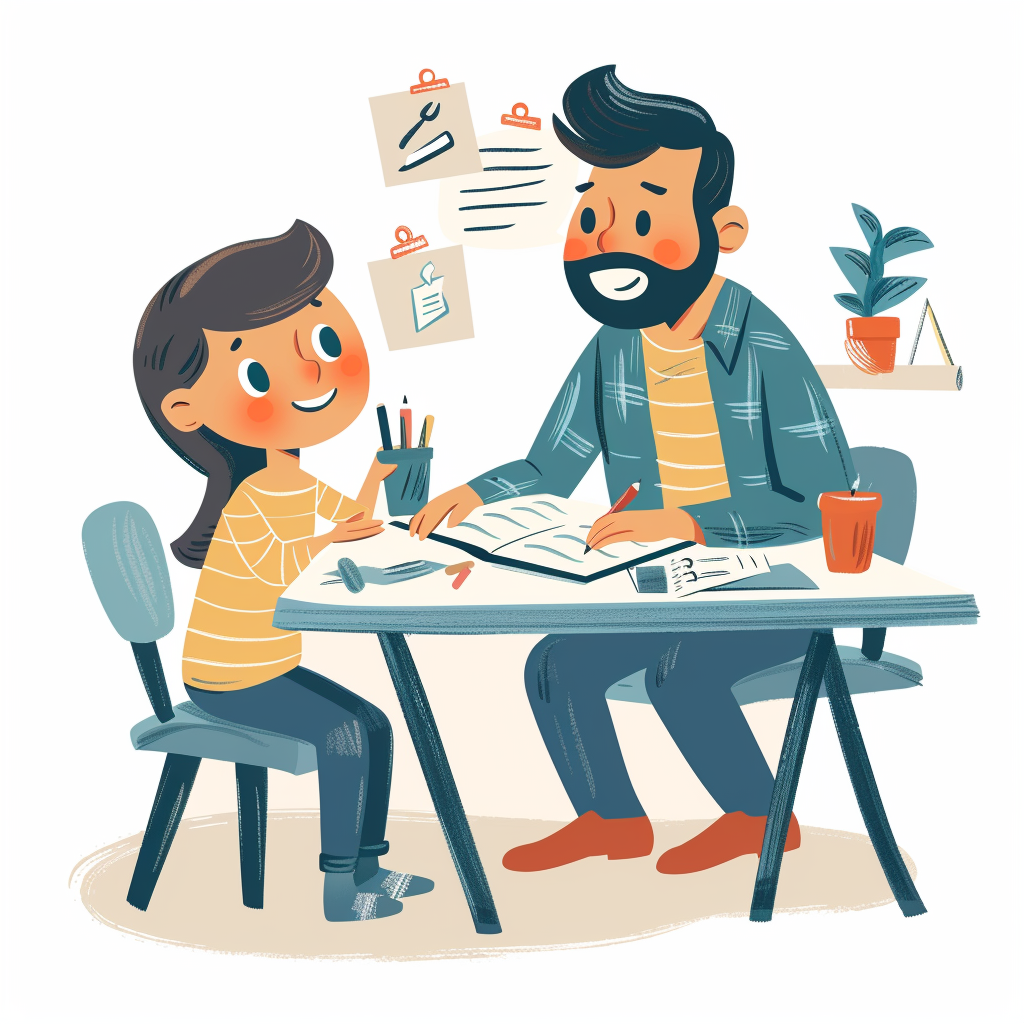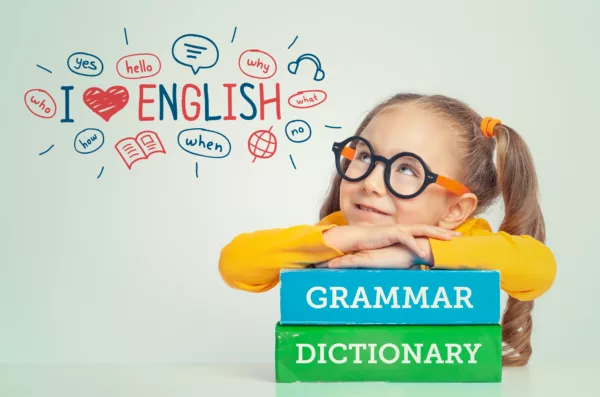Making Sentences More Interesting - Using Nouns, Verbs, Adjective and Adverbs Worksheet
Let your child take charge of their learning
Access print-friendly, downloadable Maths and English resources for easy learning.
Our aim is to help children succeed at school. Supporting children in Maths and English can be made easier if you have the right resources.
Choose from our many plans or try us for free with Teach Weekly.


How to make sentences more interesting.
KS2 children often don't know how to make their sentences interesting. They can write simple sentences, but writing a compound sentence or complex sentence can be difficult. Year 5 and year 6 Primary School children are expected to write sentences of varying length that uses a variety of words chosen for interest.
Simple, Compound and Complex Sentences
Children should use a variety of sentences in their fiction and non-fiction writing. This adds interest to their writing and makes the audience want to continue reading. Short sentences can be extended and made longer by using a variety of coordinating conjunctions and subordinating conjunctions. Conjunctions which can be used to extend sentences include: and, but, because, however, therefore, furthermore, on the other hand, consequently ...
Noun Phrases, Verbs and Adverbs
Another way to make sentences more interesting is by using noun phrases, verbs and adverbs to add description. This will help the reader create a picture in their mind and aid the imagination. Children need to choose words for effect and use a wide range of vocabulary.
What Are Noun Phrases, Verbs and Adverbs?
Noun Phrases:
- Noun: A noun is a word that represents a person, place, thing, or idea. Examples include "cat," "school," "love," or "John."
- Phrase: A group of words that function as a single unit within a sentence. In a noun phrase, a noun is the main word, and it may be accompanied by other words that modify or describe it. For example, in the phrase "the big red ball," "ball" is the noun, and "the big red" together describes or modifies it.
A noun phrase is a group of words centred around a noun, often with modifiers, that acts as a single unit in a sentence.
Verbs:
- A verb is a word that expresses an action, occurrence, or state of being. Verbs are the "action" or "doing" words in a sentence. Examples include "run," "eat," "sleep," or "is."
- Verbs are essential for constructing sentences and conveying actions or states of being. In the sentence "She dances gracefully," "dances" is the verb expressing the action.
Adverbs:
- An adverb is a word that modifies or describes a verb, an adjective, or another adverb. Adverbs often answer questions like "how," "when," "where," or "to what extent."
- Examples of adverbs include "quickly," "always," "here," or "very." In the sentence "She sings beautifully," "beautifully" is the adverb modifying the verb "sings" and describing how the action is performed.
Therefore:
- Noun phrases are groups of words centred around a noun.
- Verbs are action or state-of-being words.
- Adverbs modify or describe verbs, adjectives, or other adverbs.
Teach My Kids Tip to Make Writing More Interesting
Children can start by re-reading what they have written. They can then identify any nouns used and try and add an adjective in front of it to describe it. If a verb (doing) word is used in the sentence, children can try and include and adverb to describe how the action is being done.
Developing A Child's Vocabulary
Using a thesaurus is an excellent way of helping children find new words to use. Many children will keep using words they are familiar with and are easy to spell e.g. big. A thesaurus will help to introduce new words such as enormous, gigantic, immense etc.
Reading every day and reading a variety of fiction and non-fiction texts regularly will also help children come across new words and increase their vocabulary.
With this in mind, Teach My Kids has produced a homework worksheet that will help children with their English sentence structure.
Click on the link at the end to download your free english worksheet.
Teach My Kids - Activities for Children: In this KS2 sentence worksheet, children will turn simple sentences into interesting ones by adding nouns, verbs, adjectives and adverbs. Can you make the sentences longer?
Want more Maths and English Worksheets?
Join Teach My Kids today to improve your child's Maths and English Skills.
You Might Also Like To Read:
How To Write More Interesting Sentences
How To Improve Your Child's Creative Writing
What Is A Simple, Compound, Complex Sentence
Free Worksheet - Using Verbs and Adverbs In A Sentence
Free Worksheet - Write Interesting Sentences, Conjunctions, Adjectives, Adverbs
Free 'Making Sentences More Interesting' Worksheet

Don't take our word for it...
"Amazing site just renewed my subscription for the second year. This site is well structured and has helped to assure me that the work we do at home co-ordinates and strengthens the work done at school."
"Teach My Kids is a fantastic resource. We use the work sheets to reinforce the Maths and English that our children, James 9 and Katie 8, are learning at school. They are ideal for when we have a spare 10 – 15 minutes, and also give us as parents the opportunity to see how much our kids know!
As and when the work sheets are completed, I log in and tick them as completed, so it’s clear which topics have been covered. I try to do 2 - 4 of worksheets a week and feel that they are of great benefit to both our children.
I would definitely recommend ‘Teach My Kids’, it’s fantastic value for money and if you have any questions or queries these are answered promptly."
"I have found the ‘Teach my Kids’ website to be very helpful and informative. The worksheets met my children’s individual needs at a time when I was struggling with ways in which to support them. They were very easy to follow have made a real impact on their confidence in Maths and English.
The website is clear and well thought out and easy for anyone to follow. Any queries are responded to promptly. A great website for parents!"
"Teach My Kids has all the ingredients of the National Curriculum and above all good lesson planning. Such an excellent tool for parents and children. The worksheets are attractive and easy to read and follow. Excellent lively illustrations. I am impressed by the rewards systems and learning path progress. The learning paths are well constructed and brilliant because all the children in the family can use it. Very useful advice to parents.
I would encouraged parents towards this user friendly and excellent web site."
"Teach my kids is a very valuable website! Great worksheets available that help me and my child on her sometimes confusing learning path. Fabulous helpful and friendly owners, would highly recommend!"
"I have been with Teach My Kids for a few months and can see an improvement in my daughter. The rewards have helped her stay focused."




